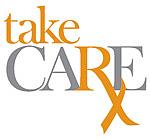CHARLESTON, W.Va. -- Administrators of a hot line that helps West Virginians find treatment for prescription drug abuse are worried the program will be forced to close.
The Mountain State has the nation's highest rate of fatal drug overdoses, and most of those deaths involve prescription drugs. But officials with the West Virginia Prescription Drug Abuse Quitline say state leaders have not shown concern for their funding problems.
The hot line launched in September 2008 with the help of $1 million from a lawsuit against Purdue Pharma, maker of the painkiller OxyContin. That money will run out next year, said Laura Lander, the program's clinical supervisor.
"We provide a service to all West Virginians that is not going to be able to continue if we don't get the funding," she said.
The free, confidential hot line is based at West Virginia University and employs six phone educators trained in crisis and addiction. They can help connect callers with drug treatment centers, educational materials and 12-Step programs such as Narcotics Anonymous.
Many people call because they're not sure whether they are addicted to prescription drugs, Lander said. The hot line also gets questions from people worried about friends' and relatives' drug problems.
"We're really a bridge between the person who needs help, and the help," Lander said.
Painkillers are the most commonly abused prescription drug in West Virginia.
Often, people who want to go to rehab face waiting lists because the state doesn't have enough treatment programs, Lander added.
"So addicts get very frustrated trying to access services because they feel like they're running up against brick walls," she said. "We help support them while they're waiting."
Lander said she has reached out to state lawmakers and other officials, but has gotten no response.
"If we had a whole bunch of lobbyists in Charleston," she said, "then I'm sure we would be much more effective."
She estimates it will take $13,000 a month -- about $156,000 a year -- to keep the hot line open. All the employees work part-time, Lander said.
Drug overdoses kill more West Virginians per year than car accidents do.
In 2008, 390 West Virginians died from accidental overdoses involving prescription drugs, according to the state Health Statistics Center. That was up from 91 in 2001.
In a busy month, the quit-line gets about 80 calls, Lander said.
When the program has money to advertise, more people call in, said Keith Zullig, who is in charge of research at the program.
"Billboards have been very successful," Zullig said, "but they're expensive."
Wayne Coombs, director of the West Virginia Prevention Resource Center, which works to prevent drug abuse, said many programs have struggled to get state funding to fight addiction.
"So far, West Virginia is not really -- at least in terms of funding -- taking substance-abuse problems seriously," he said.
Reach Alison Knezevich at alis...@wvgazette.com or 304-348-1240.


